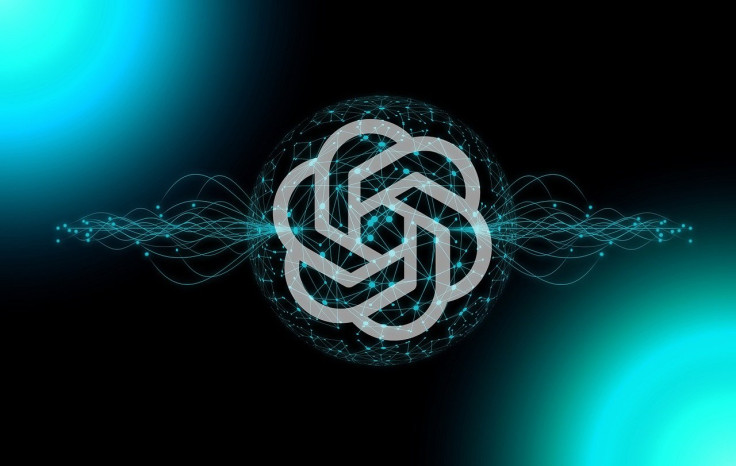Simple ways to protect your privacy when using ChatGPT
Although it generates texts in a life-like way, you shouldn't trust ChatGPT as a friend or an advisor.

There are a few precautions you need to take when using ChatGPT. Notably, new technology brings new issues surrounding the privacy and security of users, and OpenAI's widely-popular AI-backed chatbot is no exception.
The impressive text generator from the American AI company has been raising a few questions about how it collects, processes, and uses our data. In fact, Samsung recently banned the use of ChatGPT and other AI tools citing security concerns.
Currently, the market is teeming with all sorts of generative AI bots. In fact, other tech giants including Microsoft and Google have jumped on the AI chatbot bandwagon with their Bing AI and Google Bard bots, respectively. OpenAI reportedly uses publicly available text on the internet to train its LLM (large language model).
However, ChatGPT also learns from your conversation with it. So, here are some precautions you should take when using the AI chatbot.
Avoid sharing sensitive data
Information shared with ChatGPT is saved and the AI bot has the right to use it in the future. In other words, your conversations with ChatGPT are not private. According to a report by Mashable India, three Samsung workers accidentally shared a meeting recording and a confidential source code with the chatbot last month.
In the meantime, some governments are gearing up to take a strong stance against the process ChatGPT adopts to collect user data. Moreover, Germany is reportedly planning to block ChatGPT over data security concerns. The AI chatbot has been accused of violating EU data protection rules.
Use ChatGPT in incognito mode
OpenAI uses the message you send to ChatGPT to "train and improve" its AI bot. However, you can stop this simply by using the model's incognito mode. To activate it, just open ChatGPT in your browser, click on your username on the left and go to Settings.
Here, go to Data Controls and click on Show. Now, all you need to do is to activate the incognito mode on ChatGPT is turn off the "Chat History & Training" toggle switch. After changing this setting, your conversation log with the AI bot will be deleted as soon as you close the browser tab.
3. ChatGPT goes incognito
— Rowan Cheung (@rowancheung) April 29, 2023
OpenAI just launched a feature for ChatGPT that allows users to turn off chat history.
This allows users to choose conversations that can be used to train their models. pic.twitter.com/0WlceglLOr
However, it is worth noting that OpenAI saves your chat history for 30 days in a bid to "monitor for abuse" before permanently deleting it. There's an Export data option and a delete account option on the Data Controls menu as well.
You can manually delete your chat history. Simply head back to the ChatGPT interface, click on your username, and then click Clear Conversations. This will clear your entire log. Alternatively, you can clear a specific chat by clicking the trash can icon next to it.
Verify the information provided by ChatGPT
To those unaware, ChatGPT operates independently and there's no vetting process for the information it decides to offer. The same is true for other AI generative chatbots like Google Bard. According to the news-rating group NewsGuard, some anonymous sources are using AI chatbots to generate misleading content for their fake news websites.
Notably, the new study from NewsGuard obtained by Bloomberg outlined the misinformation problem with Bard. The report suggests Google's AI bot doesn't shy away from spreading misinformation. So, it is important to double-check all sources cited by the chatbot because it just makes them up sometimes.
Think twice before sharing sensitive information with ChatGPT
Do not trust ChatGPT as a friend or an advisor. In fact, the AI tool's support documentation urges users to avoid sharing any sensitive information with it. Aside from this, it is unclear how the developers will use and analyse your data.
According to the AI bot's privacy policy, the developers log your conversations and features you use and may share "aggregated information" including statistics with third parties. Moreover, OpenAI might share your email addresses, location data, and other personal information with "affiliates" in response to legal requests from law enforcement.
🚨 Privacy issue in #ChatGPT! 🚨
— Daniel Bender 🤝 AI (@AidfulAI) February 18, 2023
Your inputs are saved and used as training data for a further iteration of ChatGPT.
→ Do not use confidential information in a prompt, as future iterations might include them in the output.https://t.co/9Tk7jM63mx
However, the vague document doesn't mention who these affiliates might be. Although this is a standard privacy policy, the less you share about yourself, the better. This will also protect you from OpenAI's future questionable privacy practices. Sharing less information with the AI bot will also protect you from bugs and hacks. To recap, a ChatGPT outage led to people seeing titles from other users' chat history.
Avoid ChatGPT third-party apps
OpenAI isn't restricting third-party apps and plug-ins to build on top of its AI chatbot. So, if you're using any ChatGPT third-party app, you'll need to think about a new set of privacy and security issues. Before using a browser or an app extension built on top of ChatGPT, check all the permissions it requires.
I think legally, ChatGPT not providing enough info as per use of the data. Other services have the appropriate privacy clause. Leeking private data is a different issue.
— Mate Kosor (@matekosor) April 10, 2023
Moreover, read the privacy policy and terms and conditions. It is equally important to check whether there are any associated costs in the form of subscription fees or in-app payments. Lastly, find out more details about the developer behind a ChatGPT tool to ensure they are not scammers. Trustworthy apps usually have privacy and security settings that you can configure.
© Copyright IBTimes 2024. All rights reserved.






